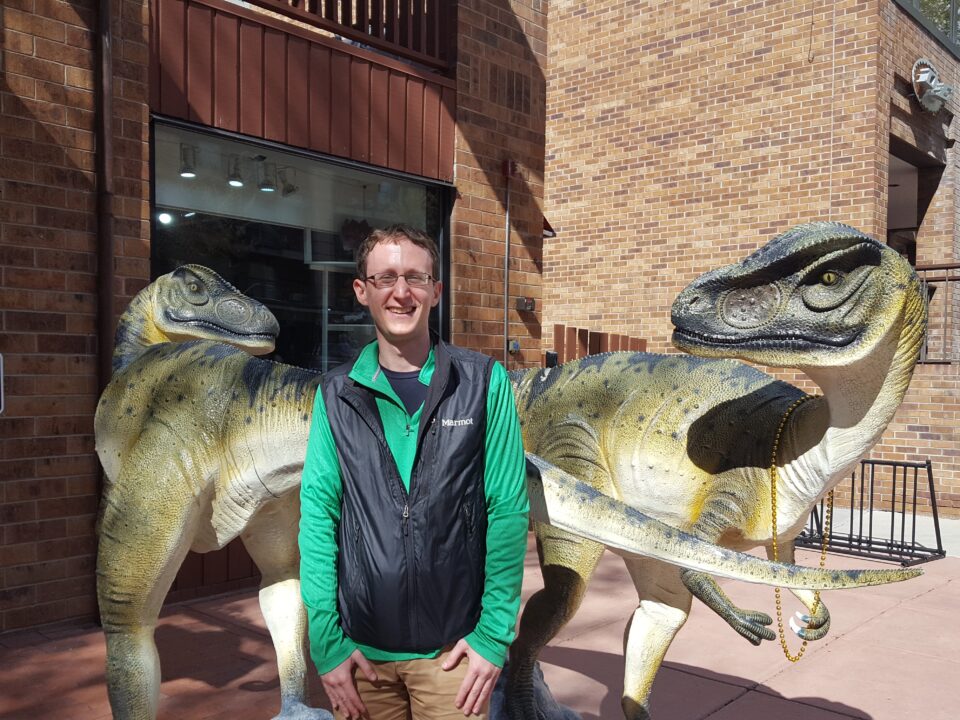Spotlight Series: National Leadership Council member, Scott Duke Kominers

Name: Scott Duke Kominers (STS 2005; ISEF 2005)
Job Title: MBA Class of 1960 Associate Professor, Harvard Business School, and Faculty Affiliate, Harvard Department of Economics
Education: Scott graduated summa cum laude and Phi Beta Kappa in Mathematics (minoring in ethnomusicology) in 2009 and earned his Ph.D. in Business Economics in 2011, both from Harvard University.
Q. What does leadership mean to you?
At an operational level, for me, leadership is about assimilating, processing and organizing information, and then using good judgment to act on that information as effectively as possible. And at a personal level, leadership is about recognizing everyone’s fundamental value and contributions and – most importantly – giving people the confidence, ability and resources to rise to their maximum potential.
Q. What is the most fulfilling aspect of your job?
Every part of being a professor is incredible, but the most fulfilling aspect for me is advising: With some students, a half-hour conversation helps them discover an entirely new opportunity, or occasionally even a new life path. And with others, you build a long-term advising relationship that’s really more like a collaboration – you’re helping them learn, and at the same time they’re also teaching you.
Q. As the world faces a pandemic, a climate catastrophe and numerous other scientific challenges, what are some steps you think the Society can take to address science literacy and support for science?
I think there’s a real opportunity in encouraging academics to actively reach out and communicate to the public, and in training them to do that well. My experience of writing about economics for Bloomberg Opinion has really scaled my impact and working closely with an editor has transformed the way I convey ideas. The Society has the expertise, standing and platform to help guide and improve scientists’ public outreach.
Q. What’s the best advice you’ve ever received? Who gave it to you and what was it?
My parents have always emphasized the importance of (1) forming your own goals, and (2) being able to talk with everyone.
Forming your own goals is actually a skill that one has to train. There’s often a lot of pressure to take on objectives that other people suggest to you, rather than the ones you actually care about for yourself. But once you get good at knowing what excites and motivates you, you can find your way to projects and activities that you want to work on all the time and that’s where you can actually achieve meaning and success.
Meanwhile, “talking with everyone” has two key aspects: First, you should always be able to converse with and explain what you’re thinking about to anyone you might meet. And second, you should take interest in everyone and always be eager to hear about their lives and ideas. Together, these can lead to exciting conversations (and making friends!) literally anywhere you might go.
Q. Did you have a favorite mentor as a young person? What difference did that person make in your life and your approach to problem-solving?
I’ve had so many incredible mentors throughout my life that it’s impossible to pick a favorite. But here are a couple who really stand out from my high school/research competition days: My high school math teacher Mrs. Wildstrom taught me that math could be an exploration – she was always encouraging my classmates and me to try and look ahead of and beyond the individual lessons to discover new ideas for ourselves. My English teacher Mrs. Eagleton taught me to explore literature and writing the same way.
Mrs. Wildstrom also introduced me to the broader mathematics community – and through her, I had the extraordinary opportunity to attend the Research Science Institute, where I met some of my other closest math mentors. Dr. John Rickert and Dr. Jenny Sendova, in particular, have been instrumental in shaping how I communicate mathematics to people: Rickert taught me that to figure out how to give a good talk, you should first imagine the worst talk possible and then do the opposite. And Sendova taught me that the ideal research paper shouldn’t just state information – the problem, process, and results – but should actually make a true connection with the reader. That means it has to be written a bit like a symphony, with each concept and result appearing at exactly the right moment and tempo for an understanding of the ideas to emerge organically in the reader’s mind.


